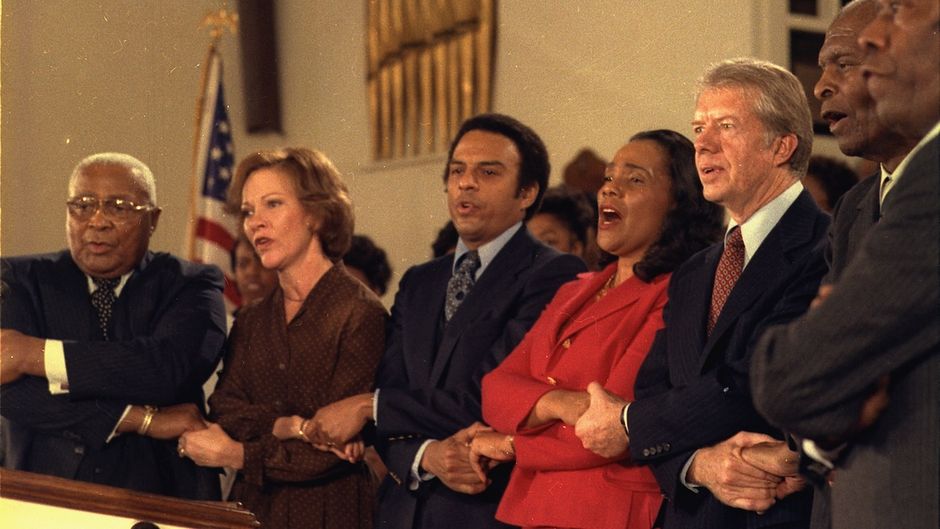Our brother Carter and Latin America
Some evangelicals still do not know how to translate the Bible into more political areas than the defence of life and family; Carter opened a way for us to explore.
02 JANUARY 2025 · 15:05 CET

Jimmy Carter is in the presence of the Lord.
It is curious that his political adversaries, the Republicans, are making a much more positive and appreciative assessment of his time in office than some evangelicals whom I would like to see in his shoes negotiating on nuclear missiles with Brezhnev or dealing with the infamous kidnapping of Americans by Khomeini's people ( contrary to reports, he did seek a forcible solution with a military attack, though it failed).
But we will ask our brother Carter about all this in heaven.
In the meantime, it is worth to look at his role in Latin America.
Many do not know that Carter learned Spanish by reading the Bible in that language. That gives us a hint of the key role the Bible played in his life, of his commitment to the Lord, and of his interest in reaching out to Latin America and understanding its people.
Latin America was important to the president. The US had considered it its backyard and had often supported military dictatorships that harshly subjugated the continent for decades. Carter surprised the world with a radical change in that policy.
He began by treating those nations with respect and dignity, and the Carter-Torrijos treaty is a remarkable example: he could have continued with the occupation of the Canal, but he chose to establish a negotiated pact between two sovereign nations without claiming a difference in size.
Undoubtedly, his biblical principles of respect for the dignity of individuals and peoples, and his refusal of the mere imposition of force were the key to understand his attitude, which surprised the whole world.
But his foreign policy towards Latin American dictatorships was what marked a definitive turning point.
Until his term in office, the threat of the spread of communism had been the argument for US governments to support cruel and corrupt military dictatorships from the Caribbean to Patagonia; Carter turned this policy upside down and demanded respect for human rights and fundamental freedoms throughout the continent.
I remember that at the time many found that naïve; I read more than one person mocking that this president pretended to rule the world with the arguments of a Bible preacher, which were good for the church but irrelevant in high politics.
Carter proved that they were fully effective and relevant and implemented them with pragmatism.
The American president set out on a path that extended its effects well beyond his term of office.
If there is democracy in most of Latin America today, it is the direct result of the political action of that president who dared to translate biblical principles into foreign policy.
His political development persists to this day: the Carter Foundation, with a significant international prestige, was admitted by the dictator Maduro as an observer of the Venezuelan elections.
His foundation put the nail in the coffin of the dictator's image when it publicly disqualified Maduro's apparatus and recognised the opposition's victory; that was more powerful than any other demonstration.
I propose two issues for reflection: Some evangelicals still do not know how to translate the Bible into more political areas than the defence of life and the family; Carter opened a way for us to explore.
We should take his political action as a reference; you can agree or not, but if you have a better proposal than his, show it by developing it with rigour and excellence, do not just play to the crowd.
I also draw attention to Carter's political affiliation, the left wing of the US Democratic Party.
If Carter presented his presidential project at one of our current evangelical meetings where political action issues are discussed, we would expel him without listening to him. We would have lost a great politician, a firm believer, used by the Lord to this day.
How many believers like him would we silence today without giving them the option to develop their proposal?
X. Manuel Suárez, secretary general of the Spanish Evangelical Alliance.
One more year
Learn all about our #OneMoreYearEF campaign here (English).
Published in: Evangelical Focus - Features - Our brother Carter and Latin America
